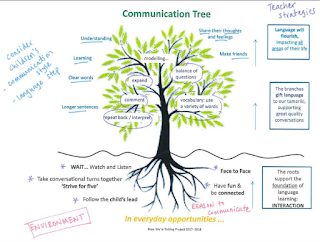To build oral language skills, children need opportunities to practice these skills in a supportive environment where they feel at ease. The conversations need to be relevant and of interest to them so they can share their thoughts and opinions and actively listen to what others say and respond appropriately to what they hear. They need to pay attention, ask questions and share their knowledge.
Peer learning is an important part of language development. Children can learn much from each other when they work together, sharing opinions, expressing ideas fluently and coherently, exploring ideas and reach a consensus of opinion. This helps a child build their own knowledge using vocabulary to describe what was possible and why and helps them learn to listen as well as to think.
Our Inquiry topic this term provided ideal opportunities to make oral language activities engaging and meaningful and to help children engage in their learning. As a trip to the zoo was planned we based our focus question on making an enclosure for a zoo animal - Does my enclosure work for my animal? The children had to think about the needs of the animal they had chosen - its diet, habitat, wellbeing, exercise and safety.
Answering this question provided many opportunities for children to research and share information. They worked in small groups and reported back to the class some of their findings. In doing so they had to express their ideas fluently and coherently, participate in conversations, listen to other suggestions and justify their own ideas. The sharing of information helped the children extend their vocabulary and understanding.
This was a great opportunity for the children who are reluctant to share their ideas in a whole class situation to informally ask and answer questions, to discuss and explain what they have been doing as they interacted with their peers in smaller groups. It helped those with more limited oral language to listen to others expressing their ideas and using language in a meaningful conversation. They knew that all ideas were to be accepted and explored. Knowledge was shared and connections made with their prior knowledge and they were to encourage each other, and listen and respect others views. They learnt new vocabulary and had the opportunity to practice it in a non judgemental group.
After the initial research about their animal the next step was to work collaboratively on planning, designing and building an enclosure. They had to consider how will I make it? What materials and tools will we use? This required a lot of discussion to evaluate the design, to refine it and see if it could work. What is the animals natural habitat like? Can it play and exercise in it? Does it keep the animal safe? It was exciting to hear the discussions and how inclusive the children were in their groups.
During our visit to the zoo the children could be heard discussing and evaluating the different animal enclosures, observing, comparing and contrasting them to their own designs. They were surprisingly accurate in their designs. The language used showed how the activities had been meaningful and engaging and helped the children learn so much more about their chosen fact than that they live in the zoo. They learnt how to work collaboratively, problem solved, made connections with their prior knowledge from their reading texts, encouraged others and practised their listening and speaking skills. It was very encouraging to see how well the children engaged with each other.








